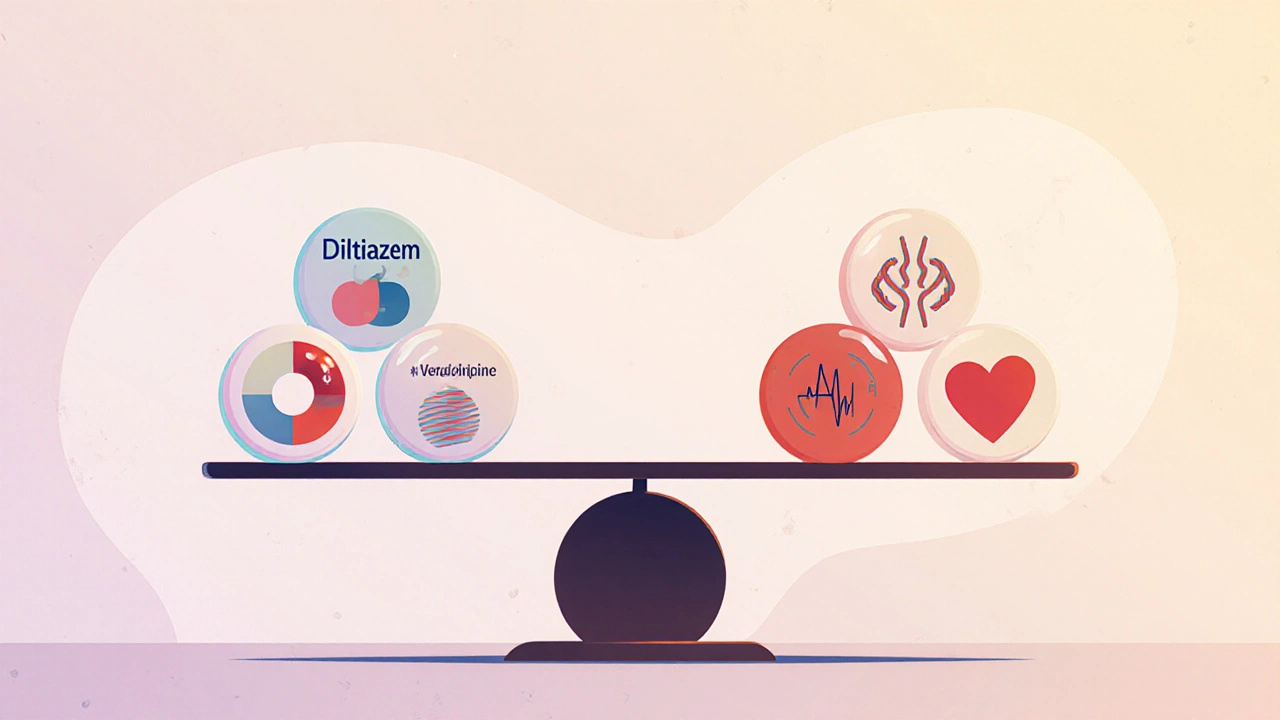Calcium Channel Blockers: What They Are, How They Work, and What You Need to Know
When your heart or blood vessels are working too hard, calcium channel blockers, a class of medications that prevent calcium from entering heart and blood vessel cells, reducing pressure and easing workload. Also known as calcium antagonists, they’re one of the most common tools doctors use to treat high blood pressure, chest pain, and some irregular heartbeats. Unlike other blood pressure drugs that reduce fluid volume or shrink blood vessels with hormones, calcium channel blockers work at the cellular level—slowing down the flow of calcium into muscle cells. Less calcium means less tightening, which lets arteries relax and blood flow more freely.
This simple mechanism makes them useful for several conditions. For example, amlodipine, a widely prescribed calcium channel blocker, is often chosen for long-term blood pressure control because it lasts a full day and has fewer side effects than older versions. Another, diltiazem, is frequently used for angina and certain heart rhythm issues because it slows the heart’s electrical signals. And then there’s verapamil, which also helps with arrhythmias and migraines, showing how one drug class can serve multiple roles. These aren’t just random choices—they’re targeted based on your heart’s specific needs.
But they’re not without trade-offs. Some people get swollen ankles, dizziness, or constipation. Others notice their heart feels slower or weaker. These aren’t side effects you should ignore—they’re signals your body is responding to the drug’s action. And while they’re generally safe, they can interact with grapefruit juice, certain antibiotics, or even some heart rhythm meds. That’s why it’s not just about taking the pill—it’s about understanding how it fits into your whole health picture.
You’ll find real-world stories in the posts below: how people manage side effects, what happens when generics don’t match up, how diet changes affect how these drugs work, and why some patients need to stick with brand names even when generics are cheaper. These aren’t theoretical discussions—they’re lived experiences from people who take these drugs every day. Whether you’re new to calcium channel blockers or have been on them for years, the information here will help you ask better questions, spot red flags, and make smarter choices with your doctor.
Beta-blockers and calcium channel blockers can be combined for high blood pressure and angina, but only certain pairs are safe. Verapamil with beta-blockers can cause dangerous heart slowdowns-amlodipine is the safer choice. Know the risks before starting.
Jan, 31 2026
Compare Diltiazem HCL with top calcium channel blocker alternatives like Amlodipine, Verapamil, and Nifedipine. Learn which works best for high blood pressure, angina, and side effect profiles.
Nov, 18 2025


